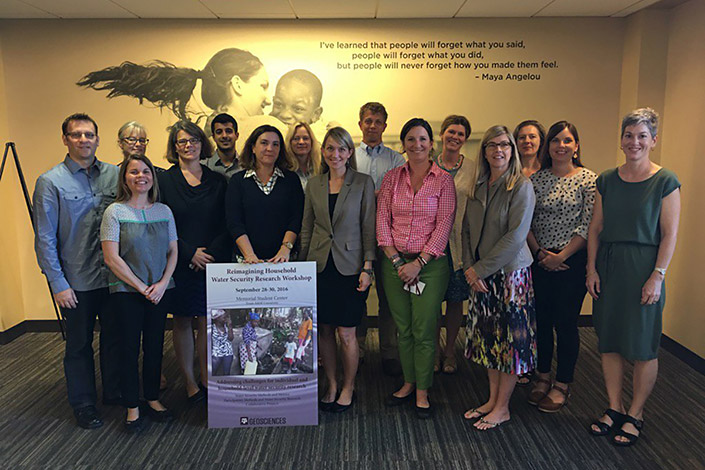Texas A&M to lead NSF-funded water insecurity research network

“Rethinking Household Water Insecurity: Methods and Metrics” HWISE Workshop participants gather for a photo at Texas A&M University in September 2016. (Photo courtesy of Dr. Wendy Jepson)
Water insecurity is a reality for vulnerable households everywhere from Flint, Michigan, to São Paulo, Brazil, and from the Texas-Mexico border colonias to Cape Town, South Africa.
“Water security means adequate, reliable, affordable water for a healthy life,” said Dr. Wendy Jepson, professor in Texas A&M University’s Department of Geography in the College of Geosciences. Household water insecurity can result when those conditions are not met and can happen almost anywhere.
To address the complex and global problem of water insecurity, the National Science Foundation (NSF) recently awarded a $500,000 grant to Jepson and several collaborators for the formation of the Household Water Insecurity (HWISE) Research Coordination Network (RCN). Jepson will lead the five-year project, along with co-investigators Dr. Justin Stoler at the University of Miami, Dr. Amber Wutich at Arizona State University, and Dr. Sera Young at Northwestern University.
“We will be consolidating our research resources and looking for new ways to study household water insecurity and impacts on health, well-being and livelihoods,” Jepson said. “We’ll be developing a geospatial perspective. And, using the toolkit we’ve taken abroad, we will take a harder look at water insecurity in the U.S. and Canada.”

